FIM @ Tufts
These downloadable resources have been developed by experts at Tufts and other leading organizations for use by researchers, policymakers, healthcare professionals, patients, and more. Resources are listed by publication date and can be filtered by type.
Sort By
- Date
- Title
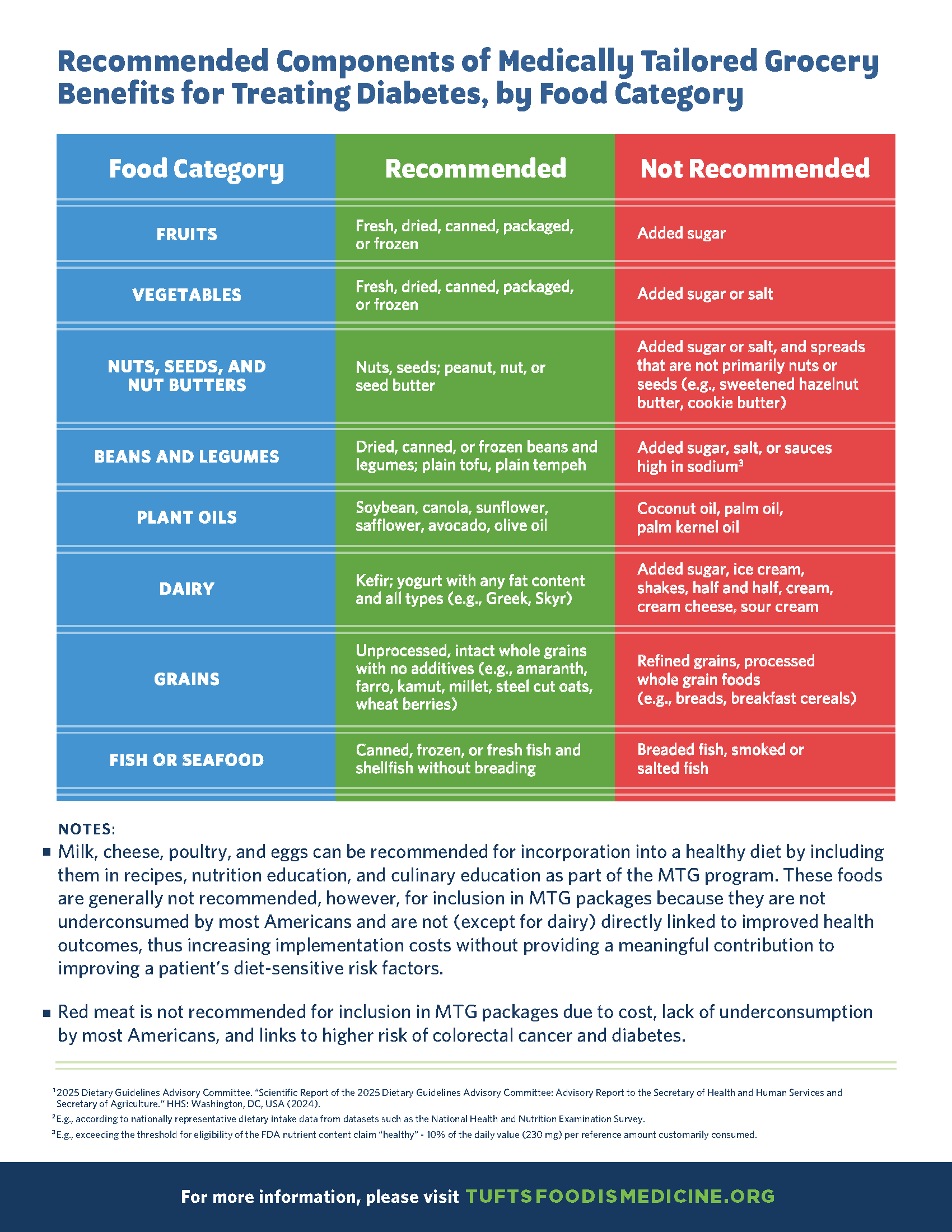
A guide for establishing an approved product list for an MTG benefit that is both comprehensive and outcomes-oriented.
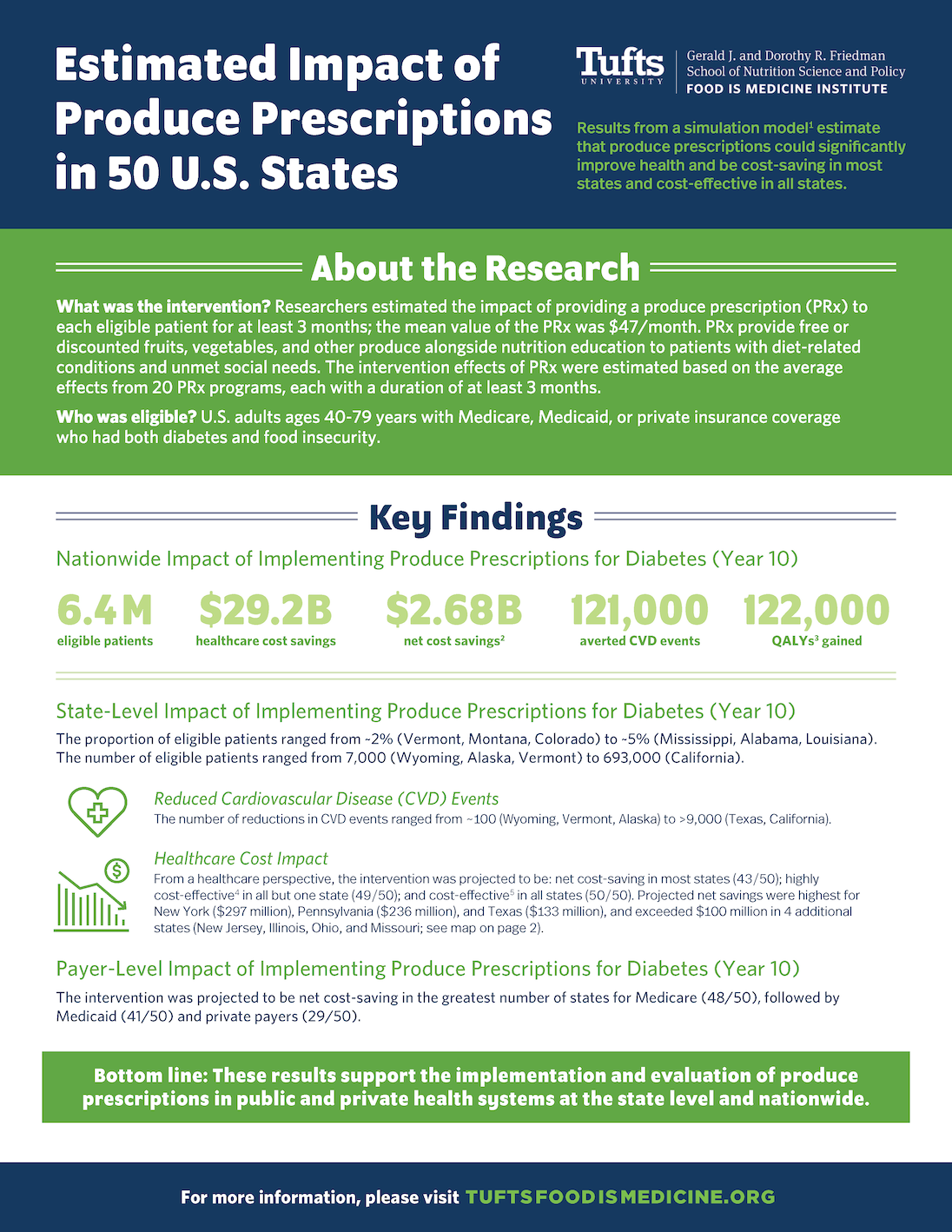
Results from a simulation model estimate that produce prescriptions could significantly improve health and be cost-saving in most states and cost-effective in all states.
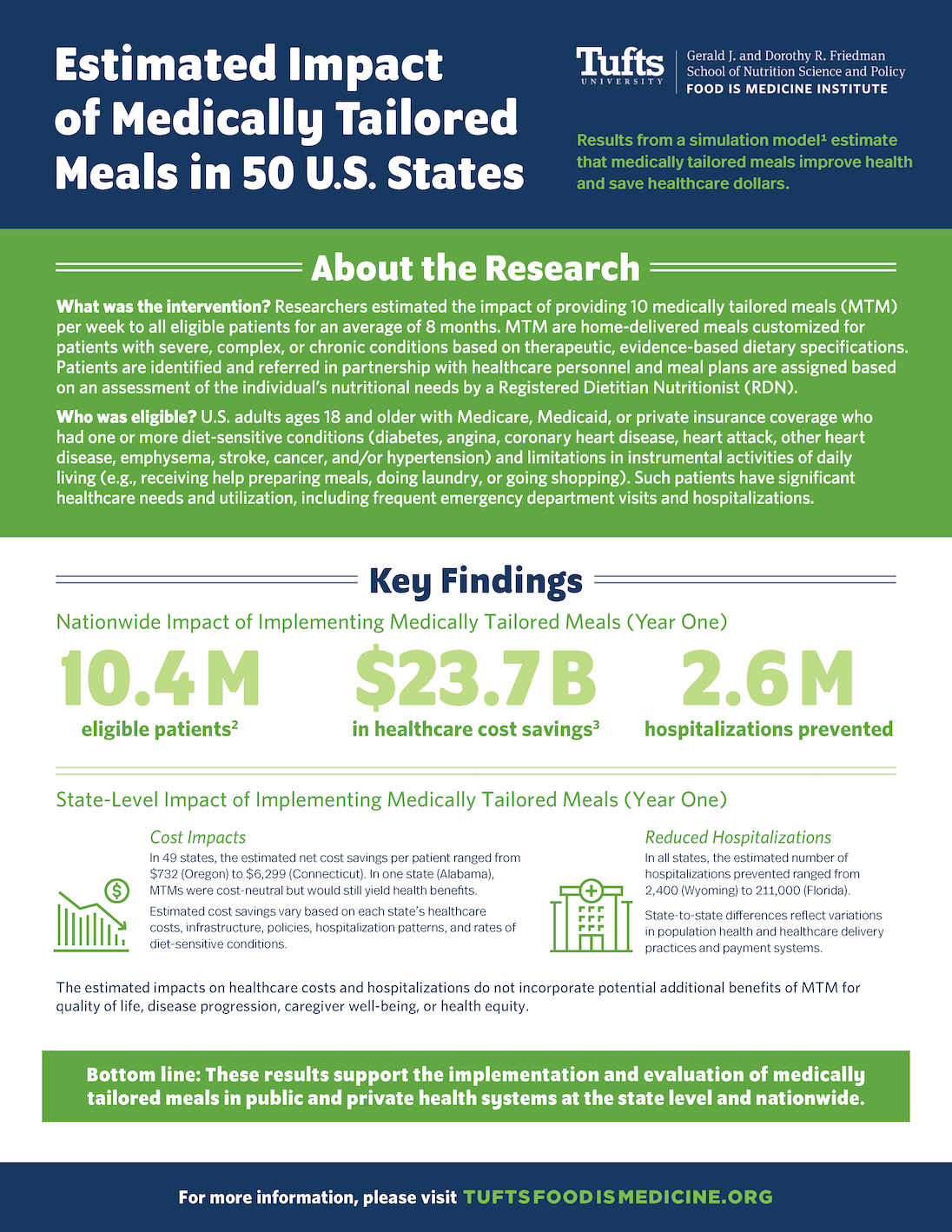
Results from a simulation model estimate that medically tailored meals improve health and save healthcare dollars.

This fact sheet summarizes results from a national survey on Food is Medicine, highlighting the strong public interest and demand for Food is Medicine policies and programs.
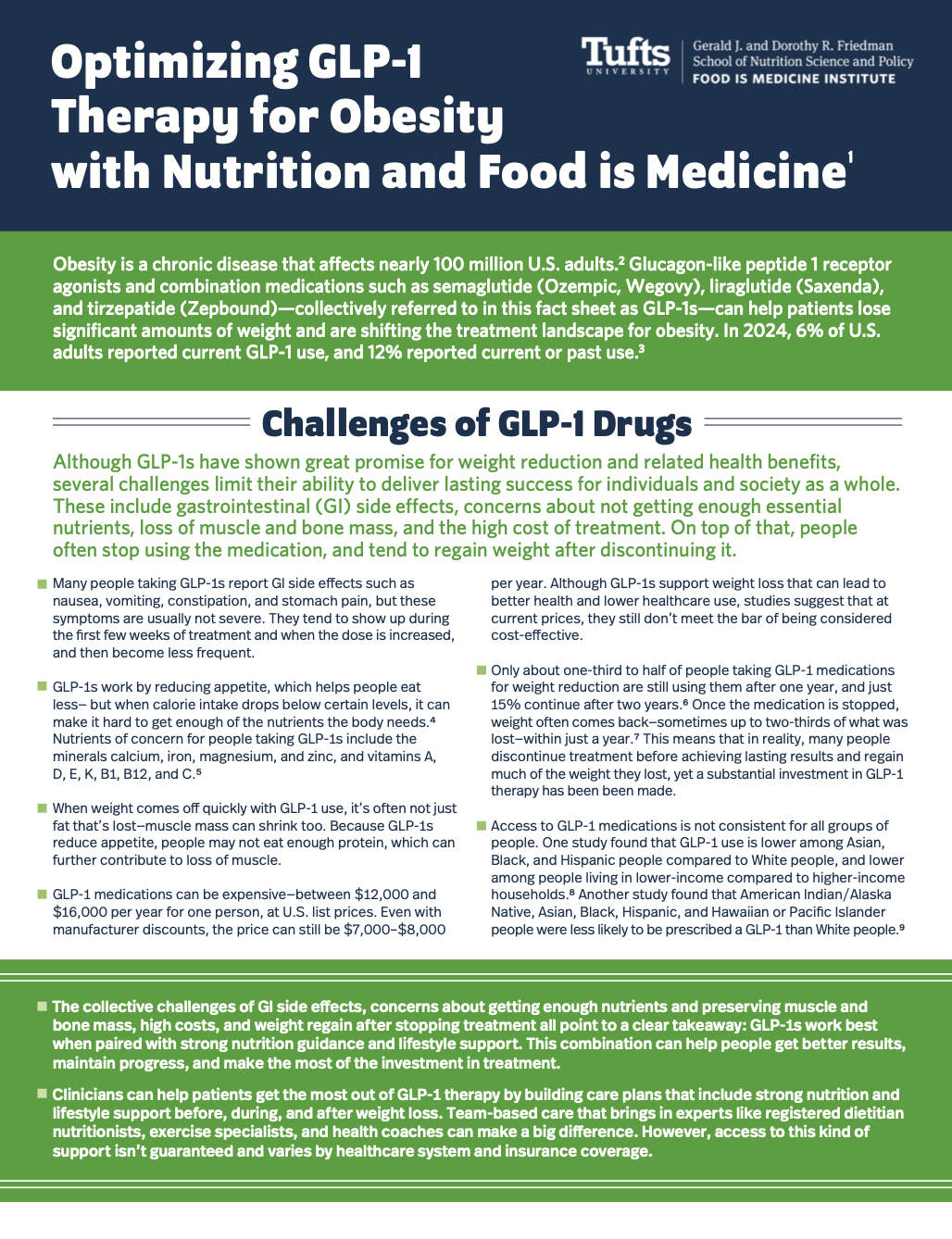
This fact sheet summarizes challenges associated with GLP-1 therapy for obesity and explains how nutrition and food is medicine play critical roles in optimizing the benefits of GLP-1 treatment.

This highly-vetted clinical nutrition course emphasizes practical application of food is medicine—97% of clinicians report it will change their practice. Spotlighted by the White House in 2024 for transformative impact. 4 hours CME/CEU includes engaging patient resources.
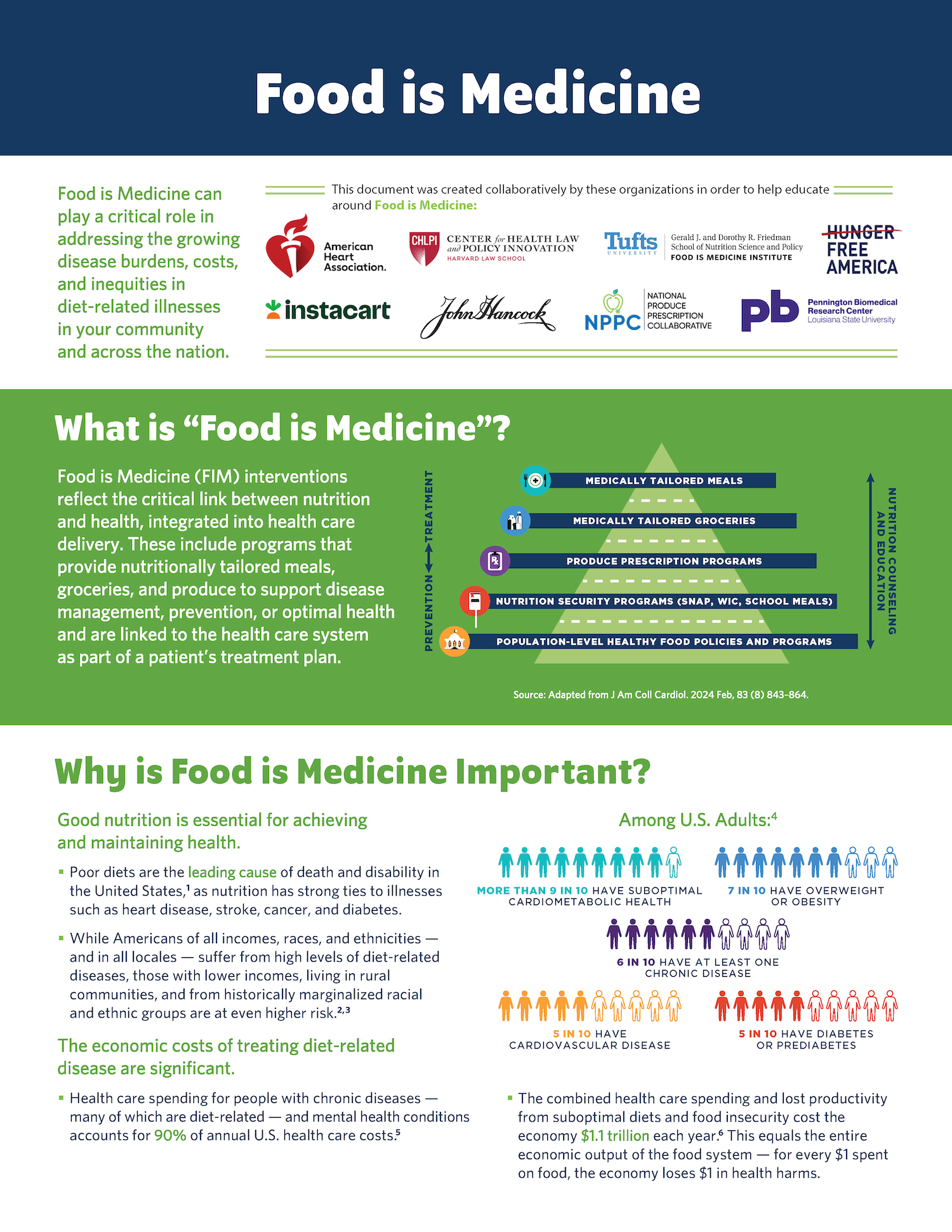
Facts, stats, and definitions around all things food is medicine.
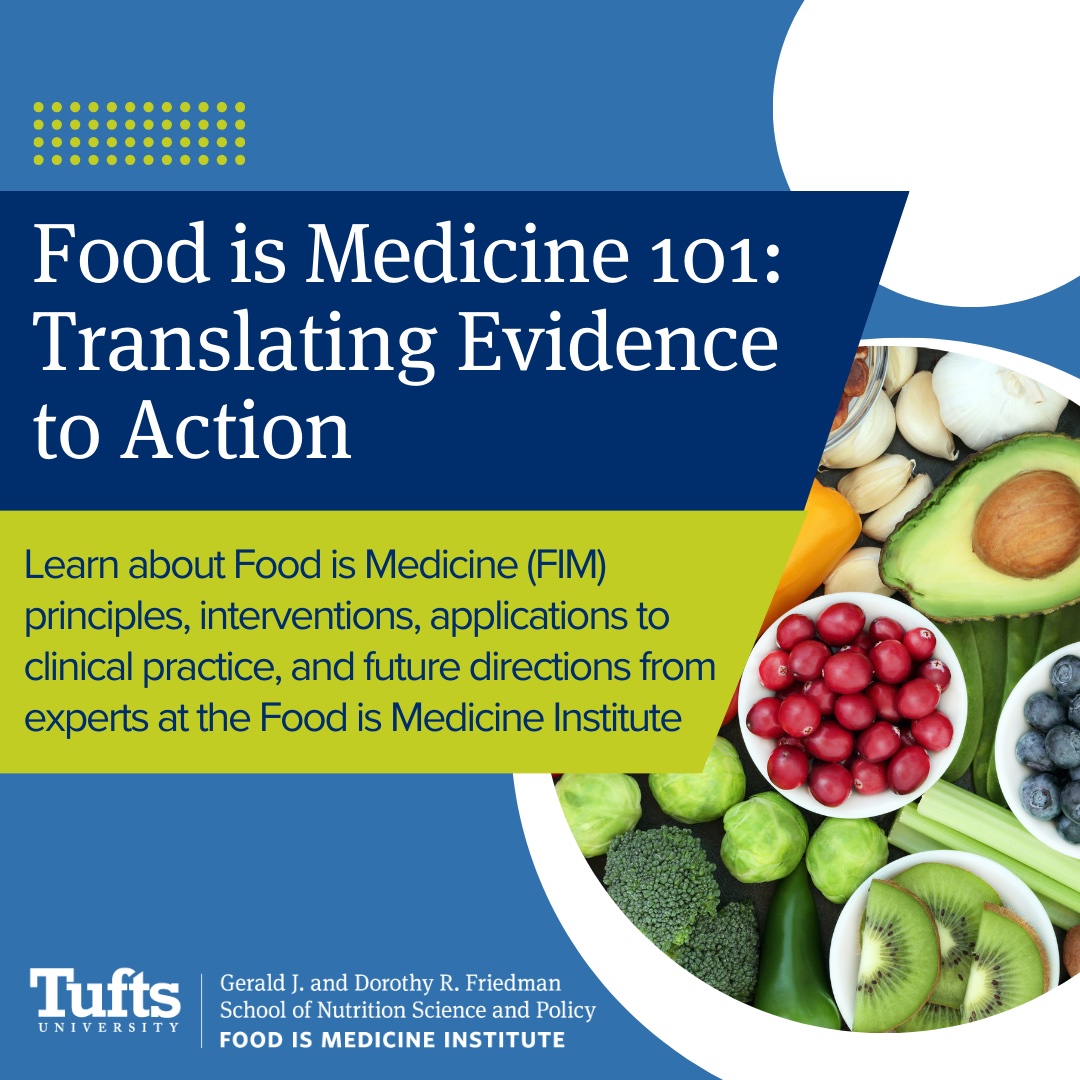
A continuing education course from the Friedman School at Tufts University
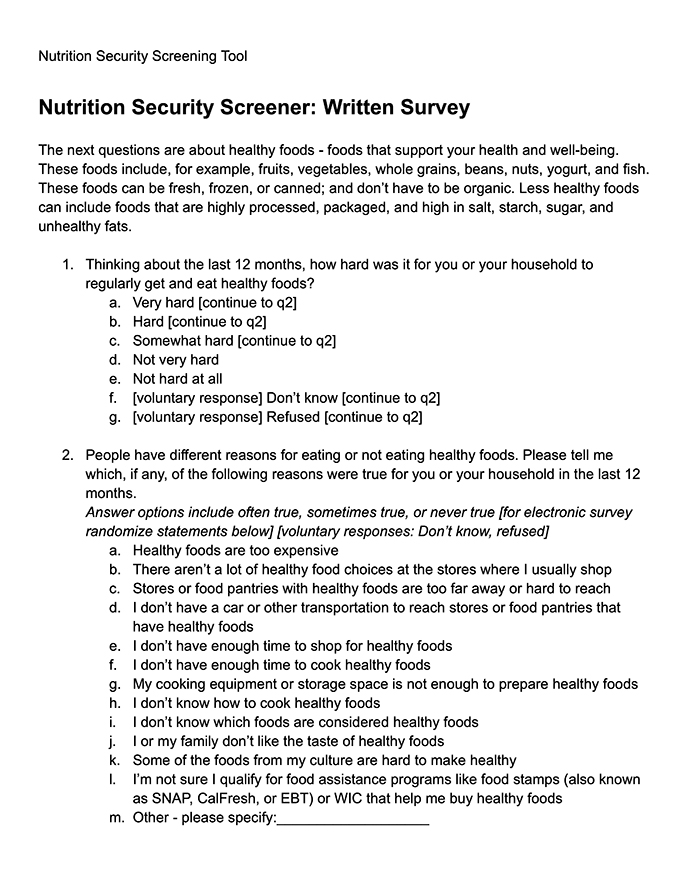
A 2-question clinical screening tool with a brief preamble for identifying nutrition insecurity in patients and food is medicine program participants.
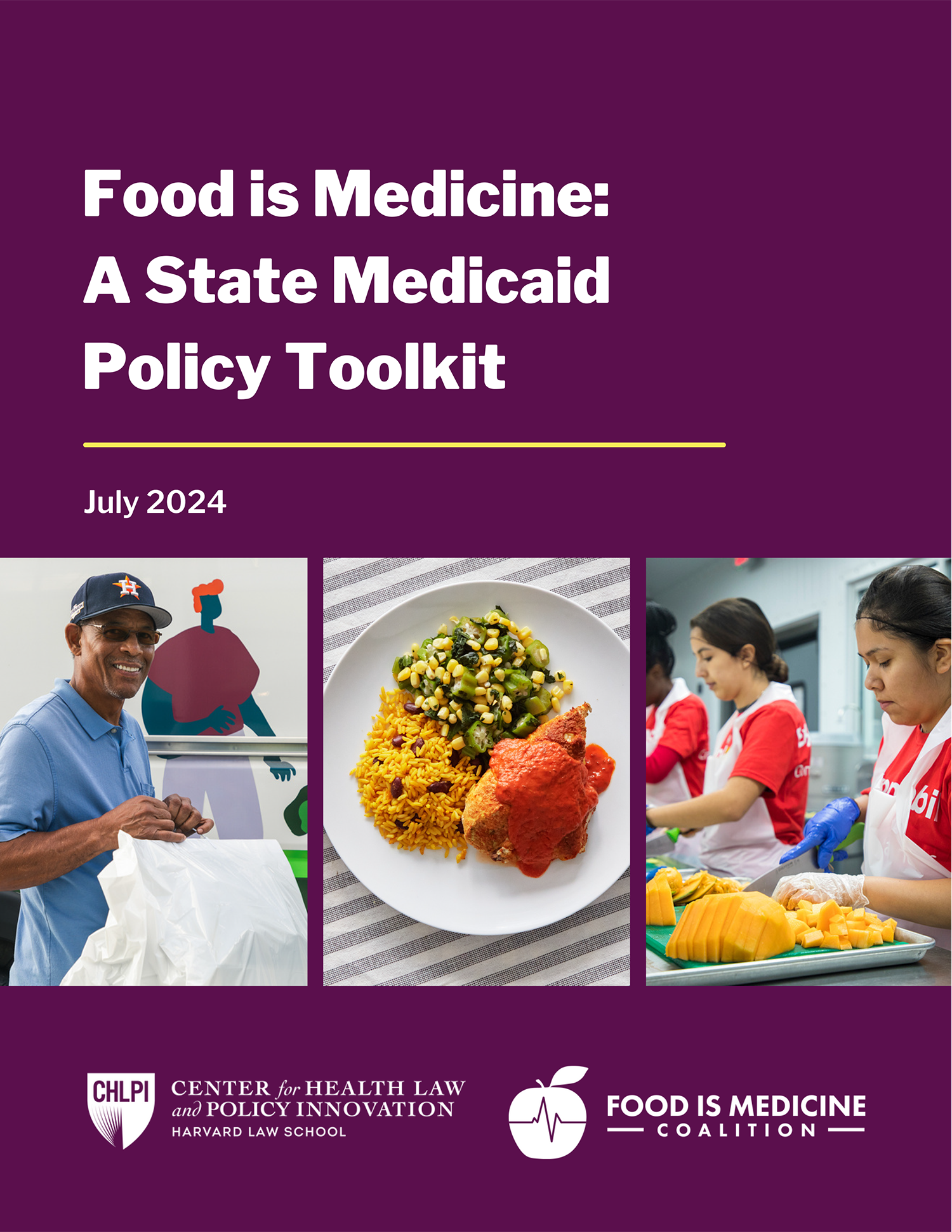
The purpose of this Toolkit is to build upon CMS’s 2023 guidance by providing a roadmap by which state officials can identify the most feasible and impactful approaches to address patient nutrition needs in their state Medicaid and CHIP programs.
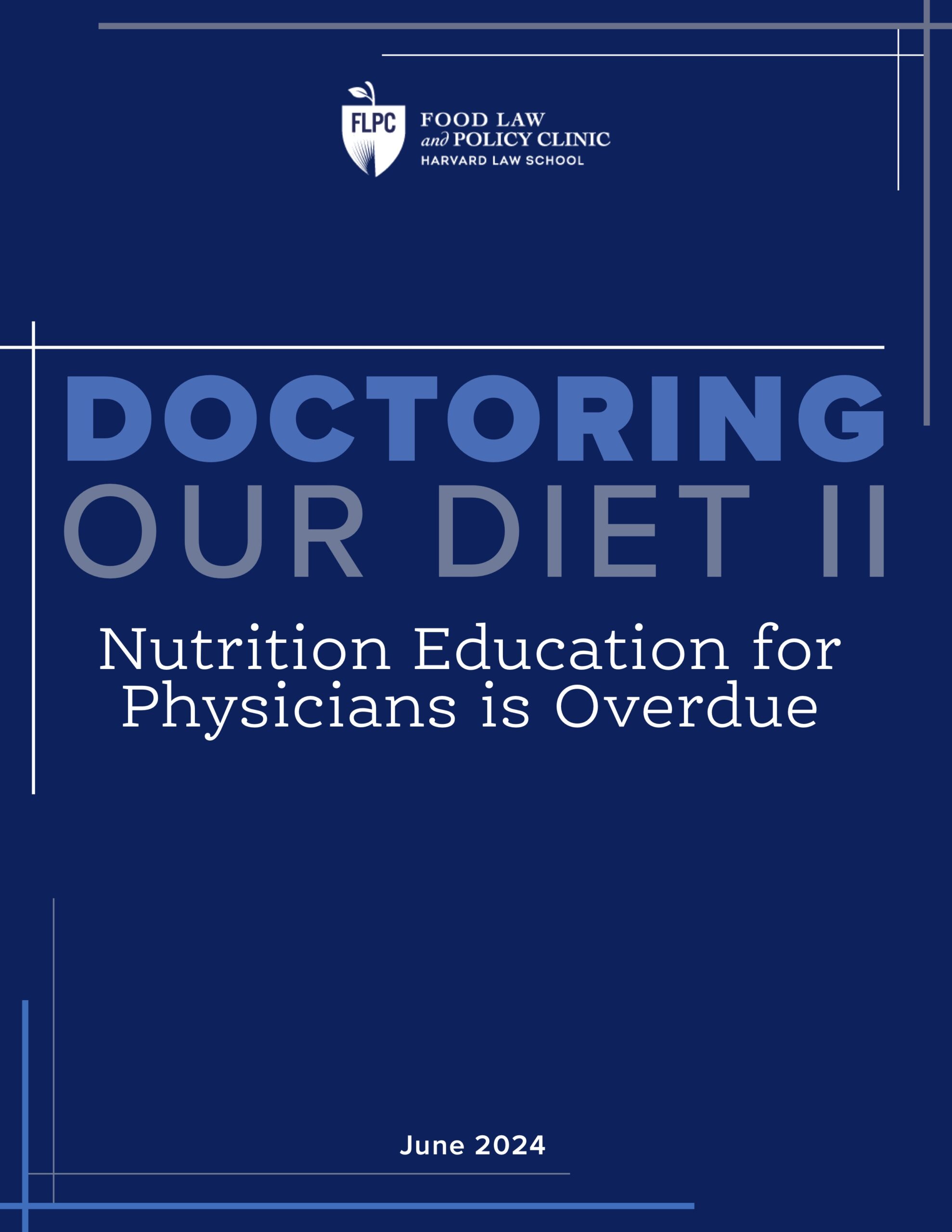
This report identifies the policy opportunities most likely to drive an increase in nutrition education at various stages of medical education.
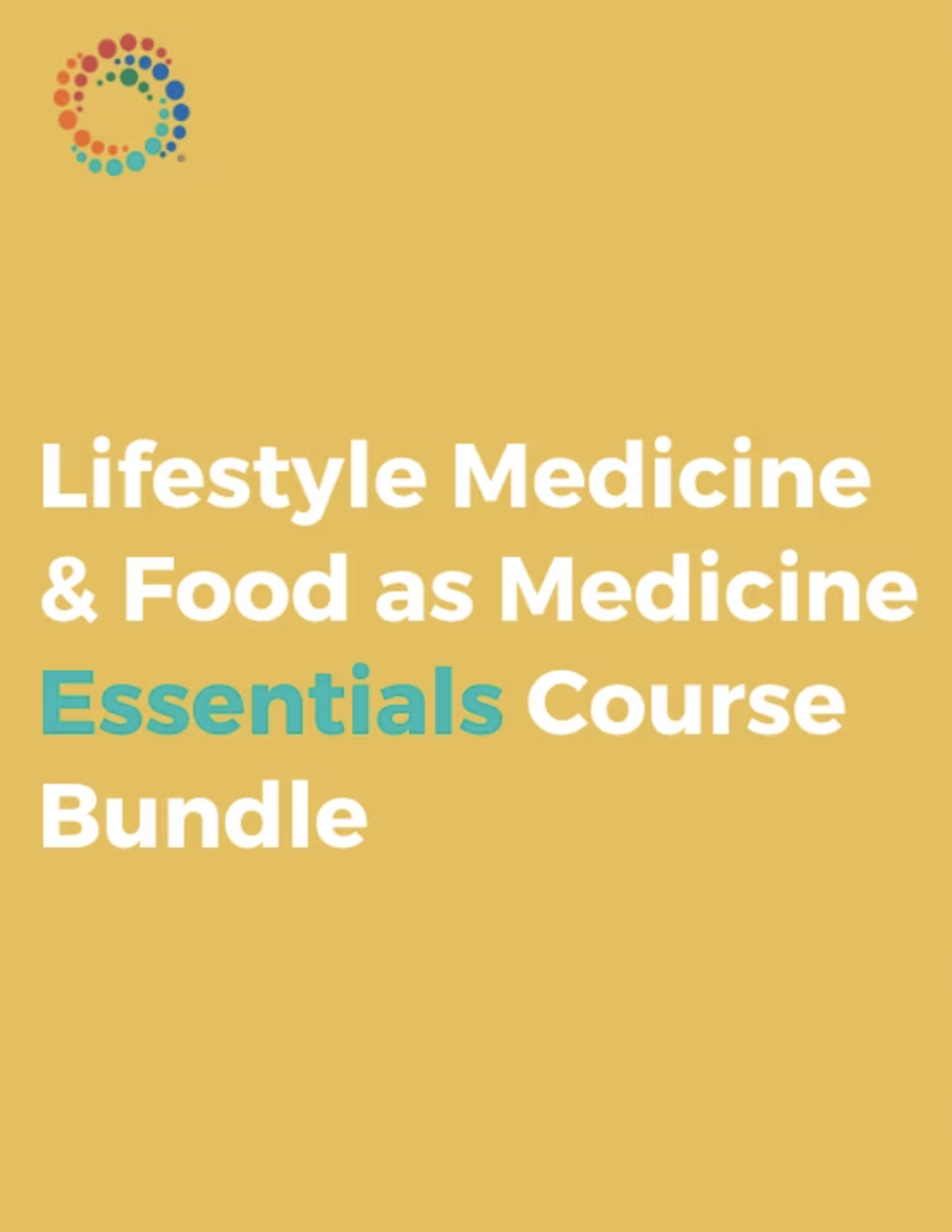
Three modules, four presentations, and 5.5 hours of content to provide a foundational, evidence-based introduction to the field, and focused nutrition education for the prevention and treatment of chronic disease.
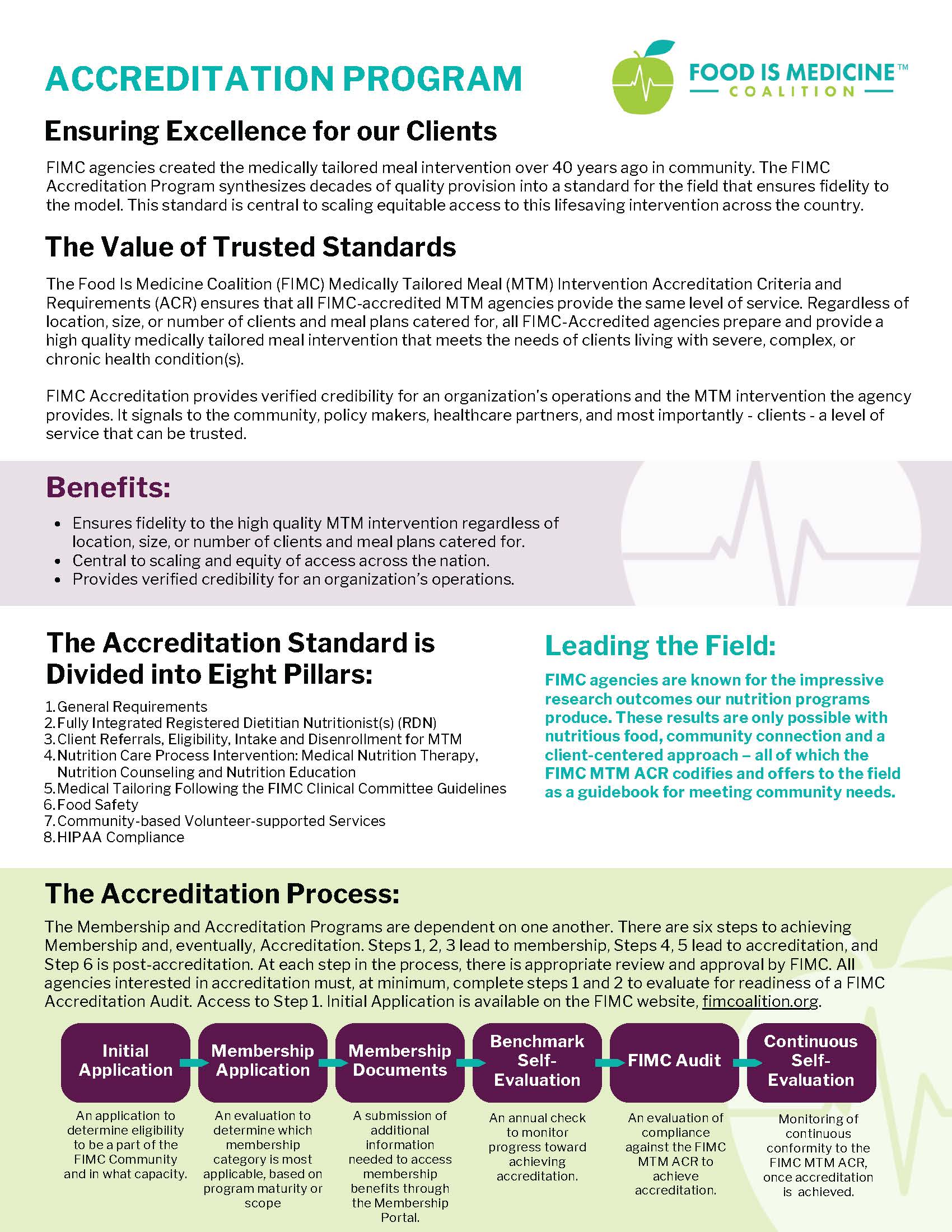
The FIMC Accreditation Program synthesizes decades of quality service provision into a standard for the field that ensures fidelity to the medically tailored meal model.
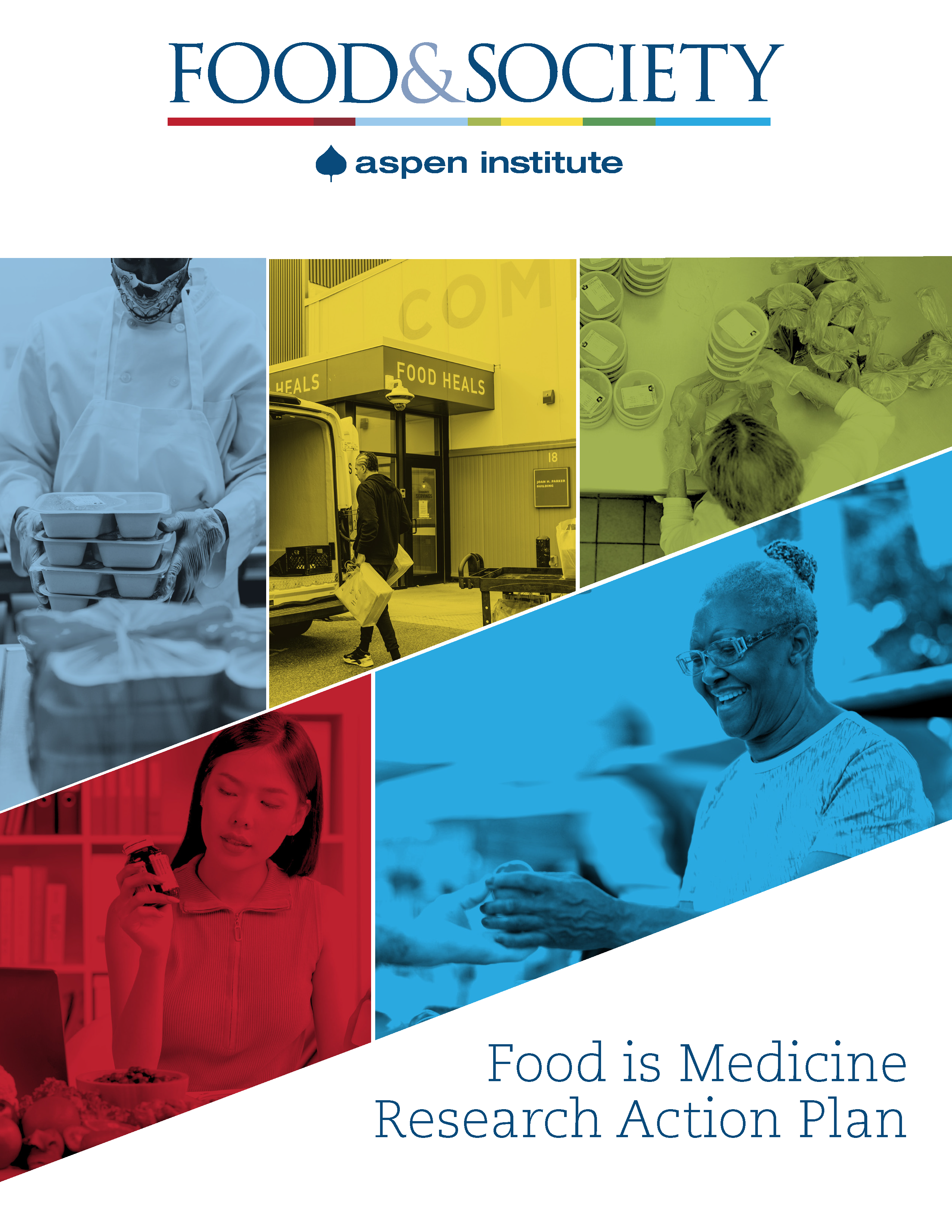
This report fully updates the quickly evolving body of food is medicine research and authoritatively describes the opportunities as well as the challenges of scaling, evaluating, and delivering health-promoting food where it is most needed.
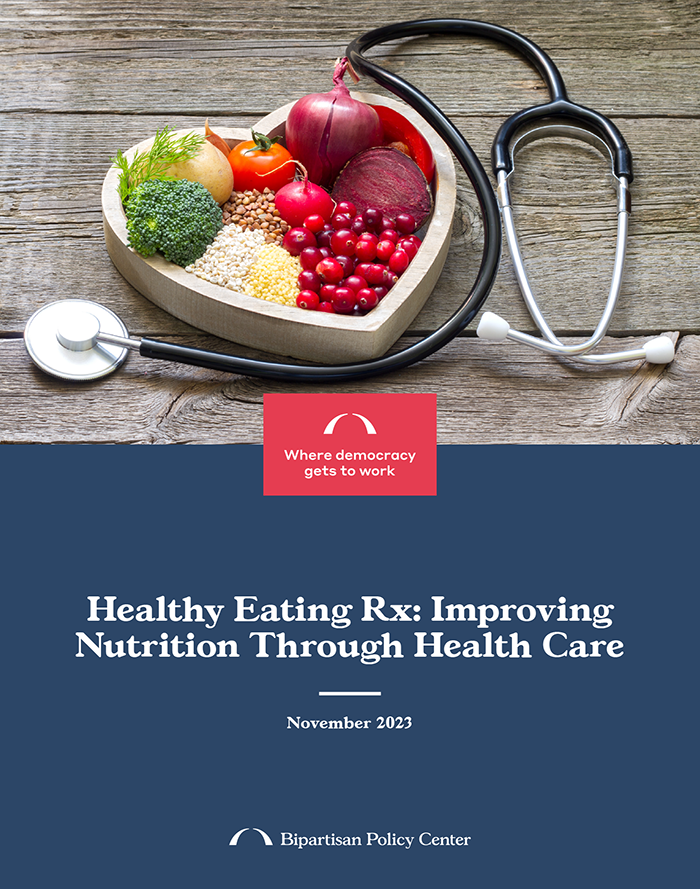
Bipartisan policy recommendations for 1. Training health care professionals and educating patients and the public on nutrition; and 2. engaging health care professionals in interventions intended to lead to the consumption of healthy food.
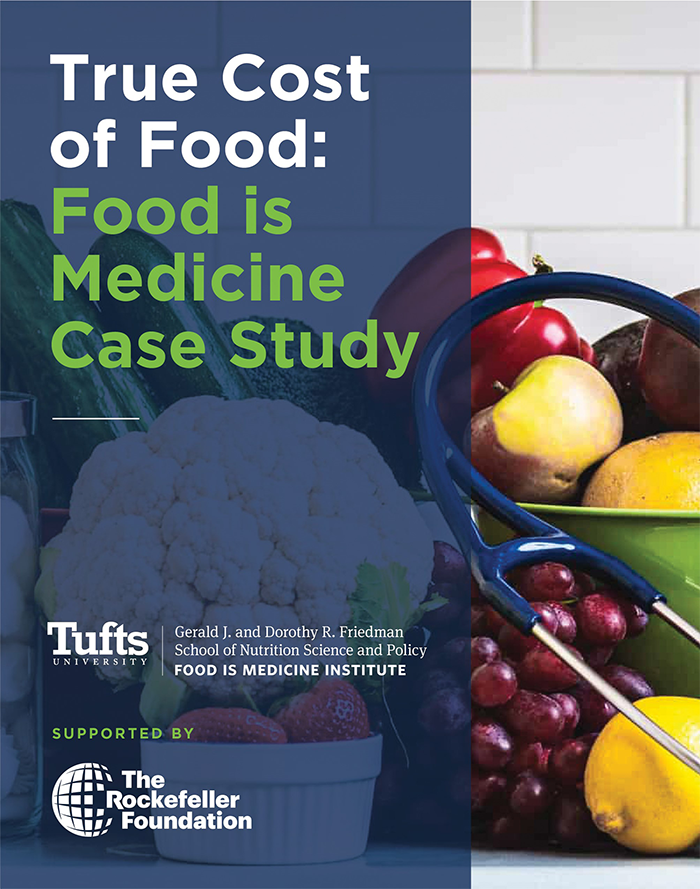
Evaluating the health and economic benefits of medically tailored meals and produce prescription programs, based on two national case studies.
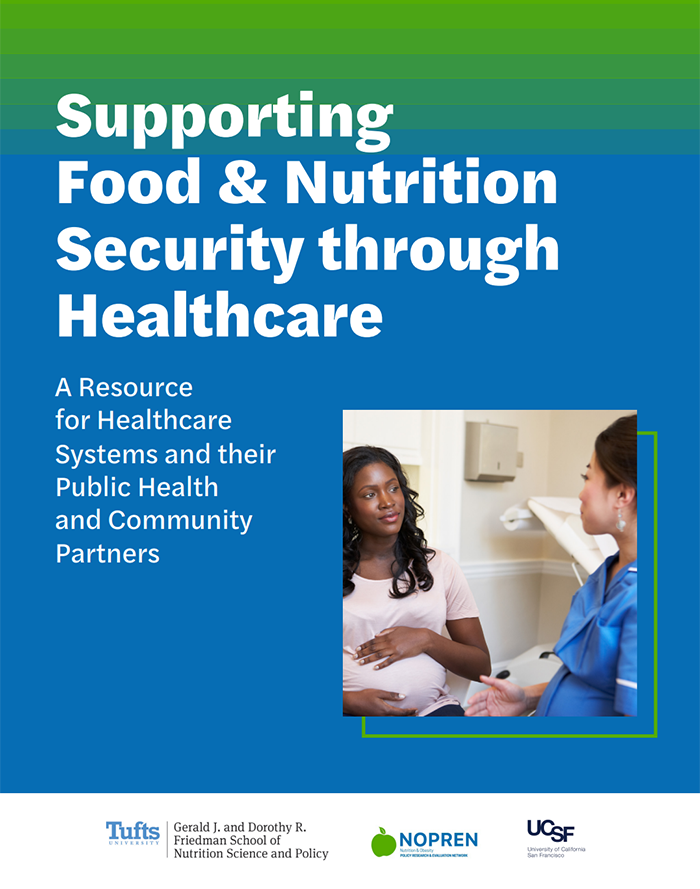
A guide for healthcare systems and their public health and community partners to implement Food is Medicine approaches.
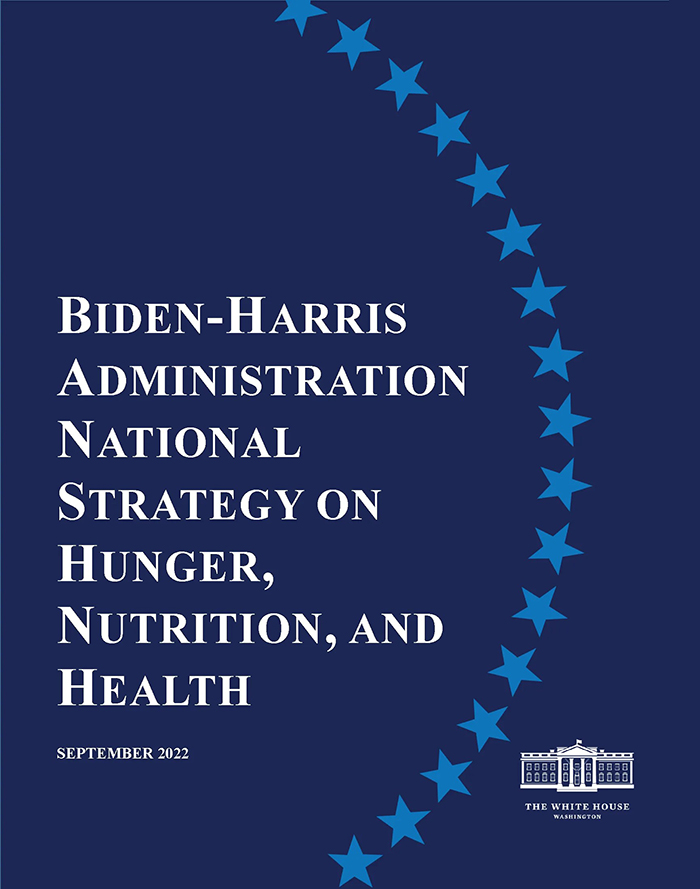
From the Biden-Harris administration, whole-of-government approaches for addressing challenges across five key domains.
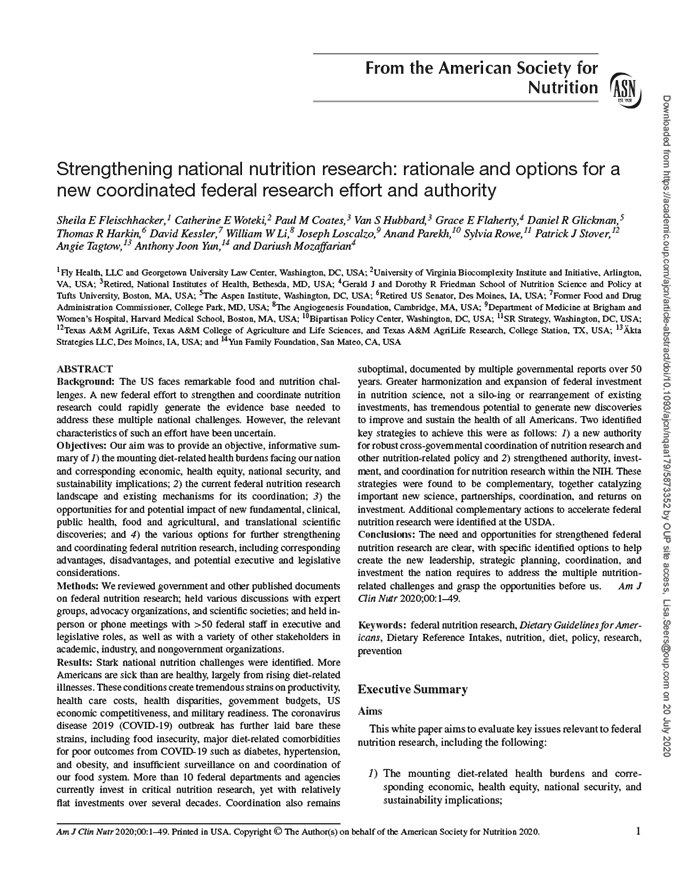
An expert coalition’s vision for strengthening existing federal nutrition research and cross-government coordination to prevent costly diet-related illnesses, better address food insecurity, accelerate scientific discoveries, bolster economic growth, and improve public health and population resilience.
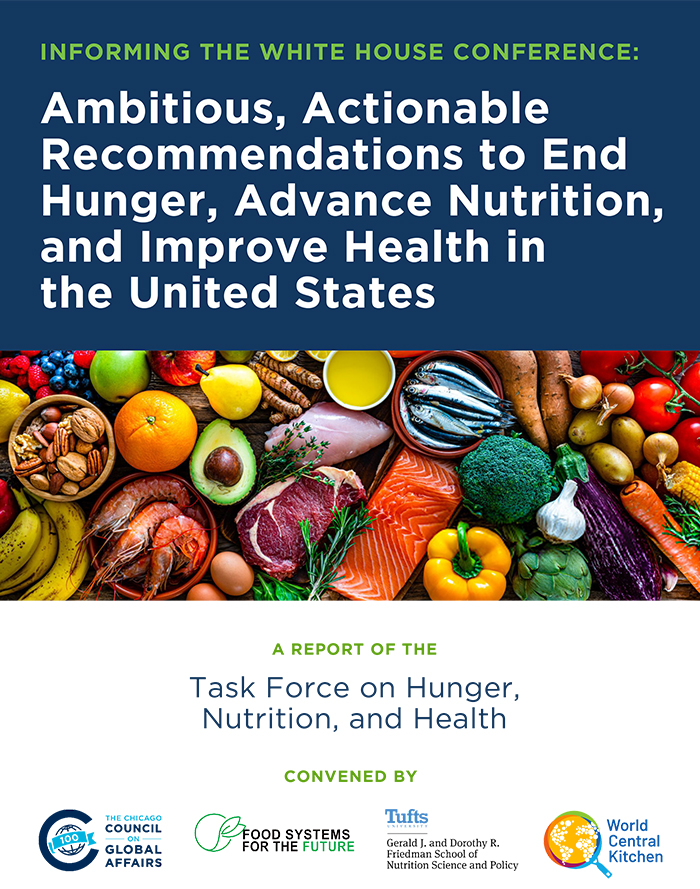
Actionable policy recommendations shared with the White House ahead of the 2022 White House Conference on Hunger, Nutrition, and Health. Many of the report’s recommendations were ultimately reflected in the White House National Strategy.
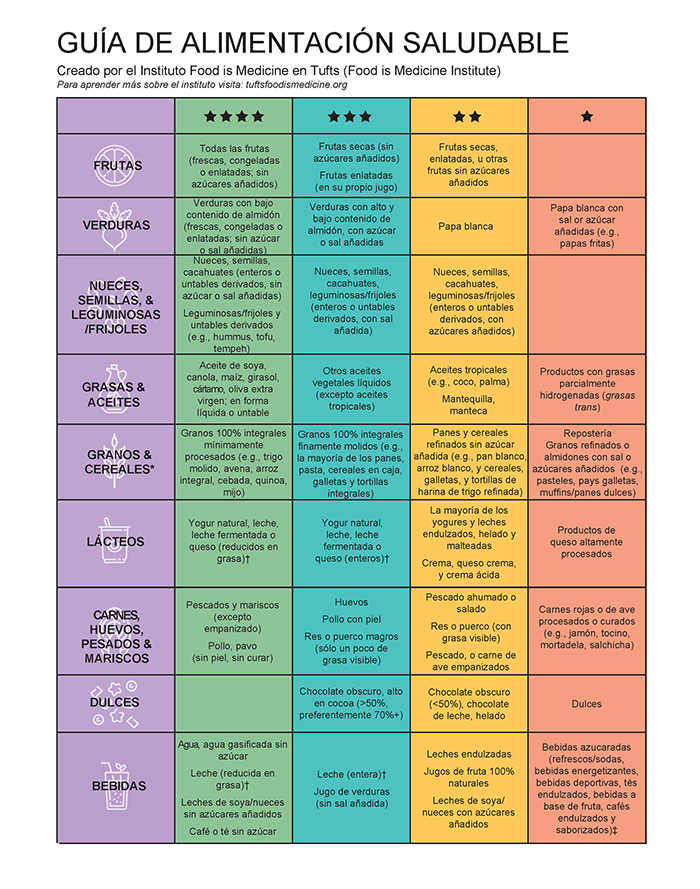
Una herramienta para clasificar alimentos de acuerdo a su contenido nutrimental que abarca desde opciones saludables hasta aquellas con mínimos beneficios.
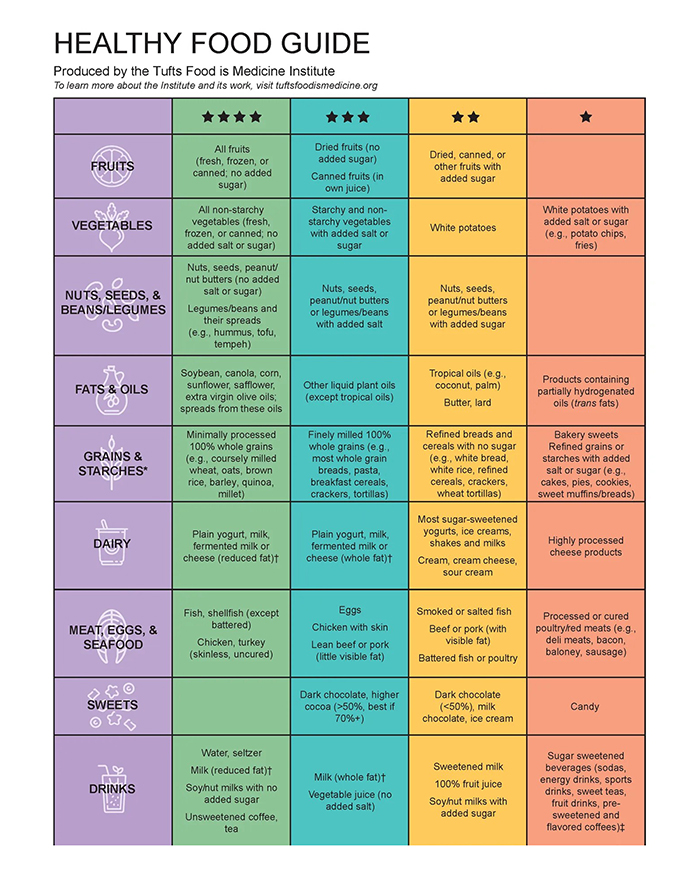
A resource for rating foods based on their nutritional value, ranging from healthy options to those with minimal benefits.
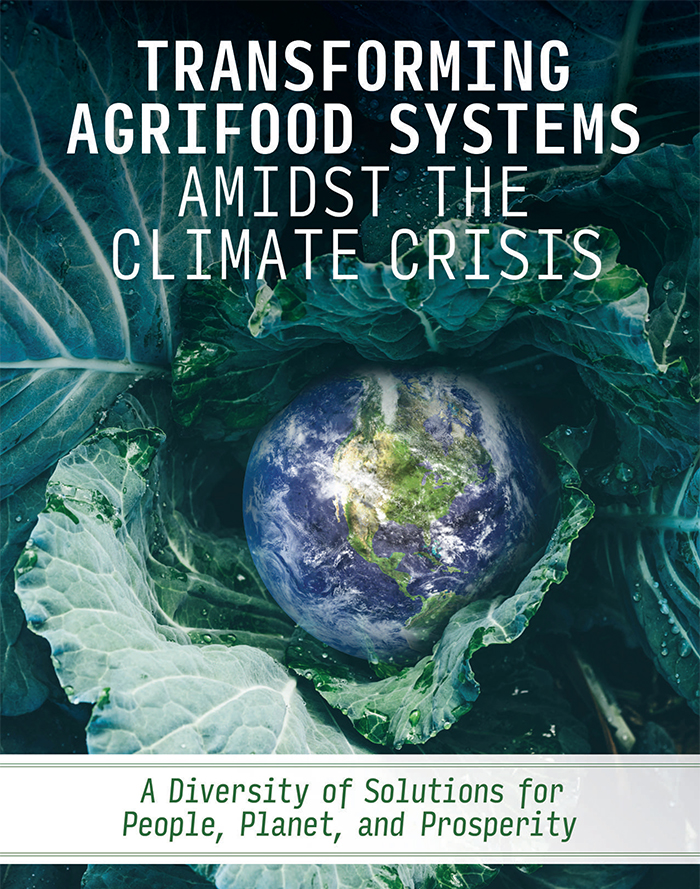
Recommendations for innovative and diverse financing and business mechanisms to transform agrifood systems and support human and planetary health.
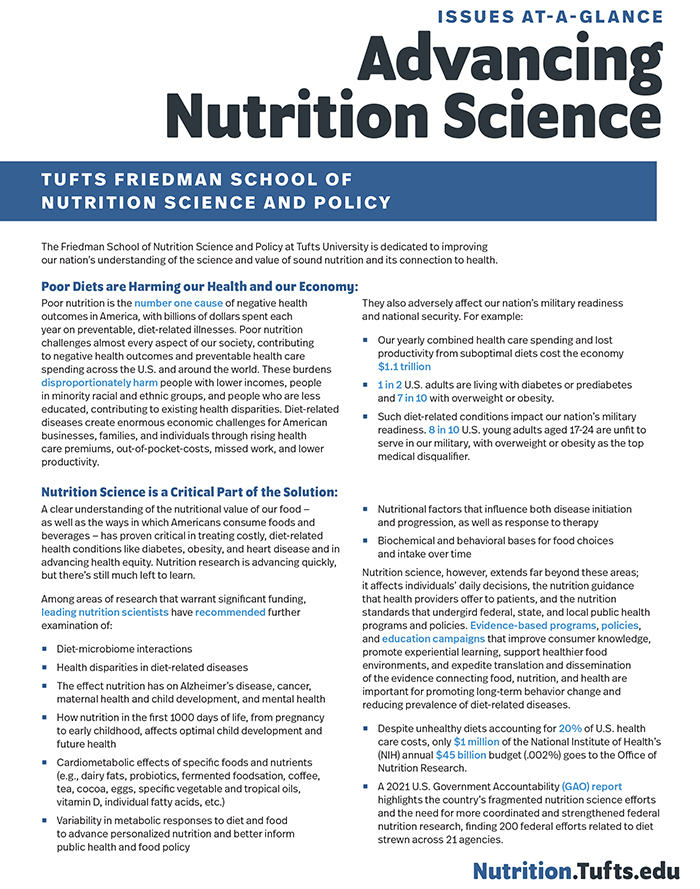
The damaging effect of poor nutrition on human health and the U.S. economy, the role of nutrition science in remedying this relationship, and the need for a coordinated national nutrition strategy to improve health outcomes for all Americans, reduce health care spending, improve national security, promote business innovation, and promote health equity.
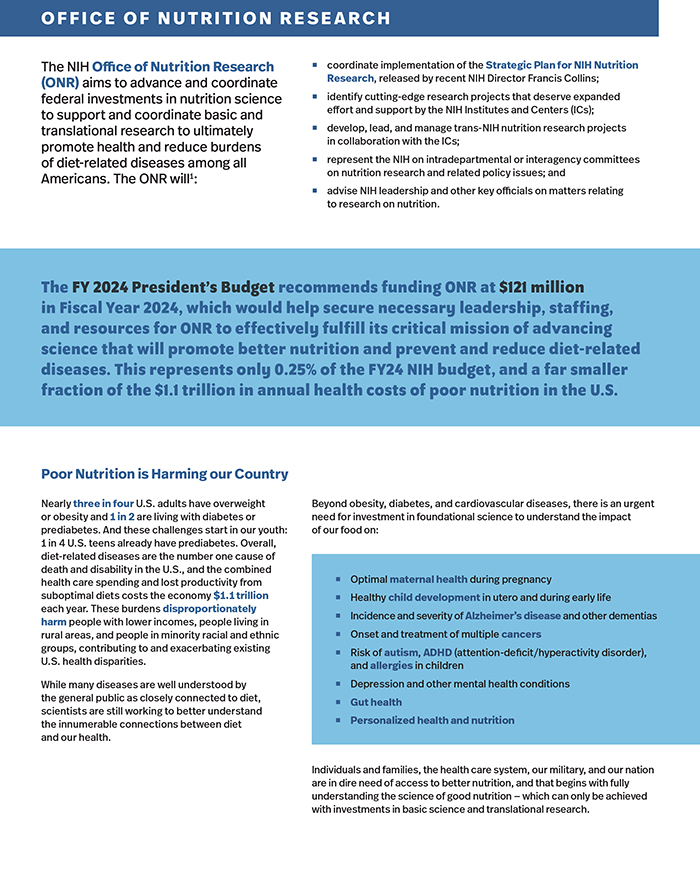
The role of the NIH Office of Nutrition Research (ONR), the need for investment in this critical office, and the expected public benefit of a fully-funded ONR budget.
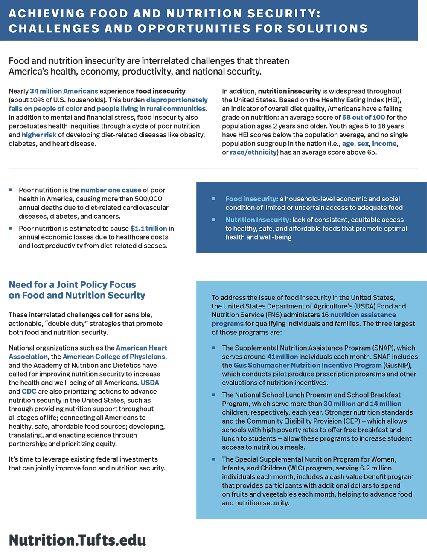
Food and nutrition insecurity are interrelated challenges that threaten America’s health, economy, productivity, and national security.
